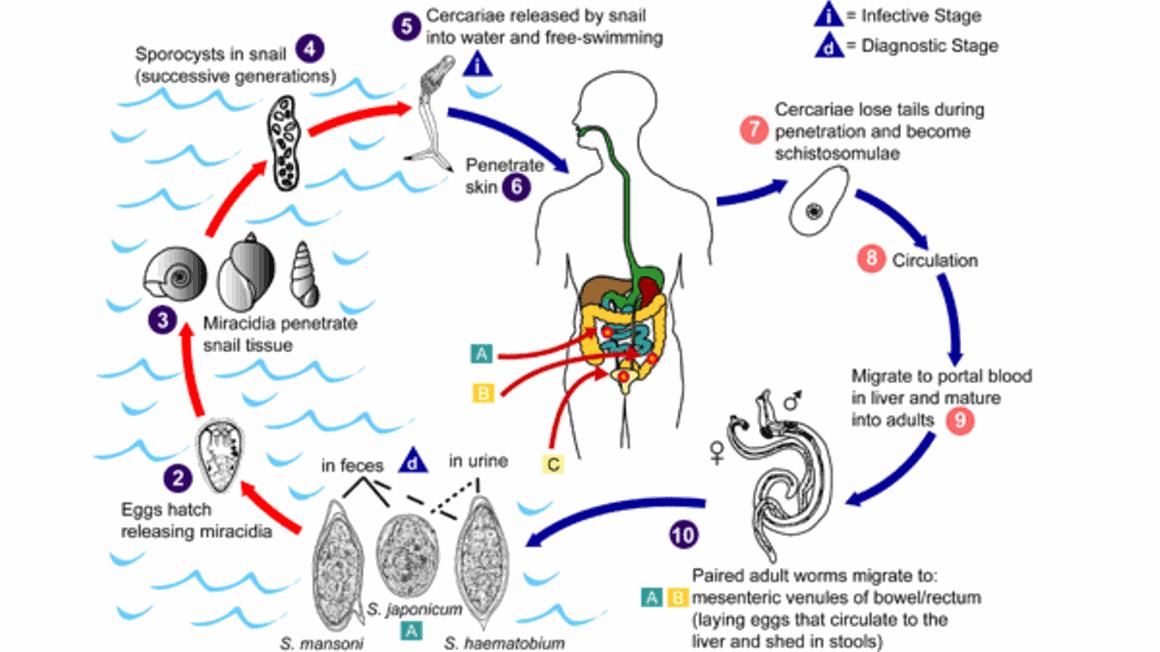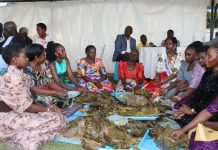Africa-Press – Uganda. Authorities in Mayuge District say cases of Bilharzia have reduced following mass drug administration of Praziquantel across 512 villages and 13 sub-counties.
Mr Juma Nabonge, the district focal person in charge of neglected tropical diseases, on Tuesday said a baseline survey done in August last year showed that the disease morbidity had reduced.
“Before the drug administration, the prevalence of Bilharzia was between 60 per cent and 70 per cent, but after the exercise, it has dropped to 30 percent,” he said.
Mr Nabonge added that this year, 305,933 children aged between one and14 years, 203,839 school children aged between five and 14 years and 379,313 children aged above 15 years have received Praziquantel, while 102,094 children aged between one and four years and 203,839 children aged between five and 14 years received Albendazole.
Ms Sarah Naigaga, a village health team (VHT) member at Nkombe B Village, Imanyiro Sub-county, said more than 400 people had received the drugs.
In 2019, the government of South Korea through World Vision embarked on a three-year $3.8b (Shs14.3b) project to raise awareness and eliminate neglected tropical diseases, including Bilharzia and intestinal worms in the district.
Partnership
The project, funded through Korea International Cooperation Agency, has been procuring medicine and facilitating treatment of the masses while working with the district Local Government and Health ministry.
This has been possible through behavioural change communication, water sanitation and hygiene promotion, local advocacy and preventive chemotherapy or mass drug administration.
Mr Anthony Odoi, the project officer (Health) at World Vision, said every year since 2019, the project has been carrying out the drug administration with the target population being children aged between one and 14 years for Albendazole and above five years for Praziquantel.
“We have been supporting the district in procuring the drugs, training health workers and VHTs, community sensitisation and facilitating the VHTs to conduct drug administration in their communities,” Mr Odoi said.
Mayuge at risk
Mr Moses Arinaitwe, the programme officer of Bilharzia and Worm Control Programme in the Ministry of Health, told Daily Monitor that Mayuge has one of the highest prevalence rates of bilharzia and soil transmitted helminths.
“Bilharzia is most prevalent around water bodies and it is endemic in 90 districts though at different levels. In the eastern region, all districts bordering Lake Victoria are highly endemic,” he said.
In 2003, a survey conducted on several island schools in Mayuge by then district director of health services, Mr Peter Naireka, said more than 75 per cent of the children carried germs that cause bilharzia.






